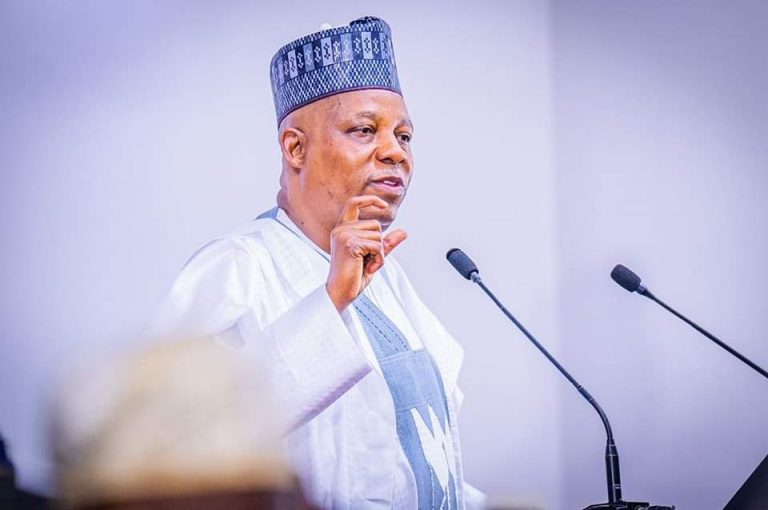The International Police Organization, INTERPOL, has appointed Nigerian Police Commissioner, CP Ifeanyi Henry Uche, as the Chairman of the African Heads of Cybercrime Units comprising heads of 54 countries.
This is just as he has advocated for the establishment of African Incident Response Mechanism and Cybersecurity Frameworks on Police-to-Police basis to eliminate the bottlenecks impeding free flow of resources.
CP Uche who is the Commissioner of Police in charge Nigeria Police Force National Cyber Crime Centre (NPF -NCCC) is taking over from Ratjindua Tjivikua, head of Cybercrime of Namibia after his tenure expired.
Speaking at the closing of the Africa Working Group Meeting on Cybercrime on Friday, CP Uche said, “The high penetration rate of new technologies in Africa increasingly exposes the sub-regional cyberspace as potential targets for cybercriminals as most African countries still have low levels of commitment to cybersecurity.
“It is important that we join the operational sub groups created by INTERPOL to bolster our collective efficiency in the fight against cybercrime in the subregion.
He said, “Resource sharing, the level of information and intelligence among African law enforcement is still at its lowest ebb largely blamed on extant domestic laws.
“I advocate for the establishment of African Incident Response Mechanism and Cybersecurity Frameworks on a Police-to-Police basis to eliminate the bottlenecks impeding free flow of resources.
“We must leverage the INTERPOL NCB 1/247 communication network and existing capabilities with regard to sharing of classified intelligence.”
Uche said this should be done with “Establishment of Specialized Cybercrime Units, noting it is rather unfortunate that most African countries do not have a specialized Cybercrime Unit dedicated for the investigation of Cybercrime and cyber-enabled crime. I implore member states to under-study the Nigeria police model of the Nigeria police Force National Cybercrime Center (NPF-NCCC).
“Investment in Technology, Infrastructure and Capacity building through a deliberate effort by member states to make the multi-million-dollar commitment in acquiring the much-needed technology and digital solution as a prelude to efficient cybercrime response and prevention. We must begin to look inwards by developing indigenous technologies to address our peculiar socio-cultural challenges.
“Legislative support to push the advocacy and lobby the governments to make and enforce robust cybersecurity laws and regulations that address cybercrime effectively. This includes laws on data protection, online privacy, electronic transactions, and cybercrime prevention.
“With the Fourth Industrial Revolution and emergence of Al and IOT, the undeniable reality is that the global cyberspace is undergoing profound and rapid changes given the penetration of new technologies and growing interconnection of the system.
“Though this evolution offers opportunities for innovations, diversification, and cost optimization, it also carries with it increased exposure to new and devastating risks of imminent cyber-attacks. These attacks permeate and affect the entire global digital ecosystem equally with no exception to geographic belts hence it affects businesses of all sizes both in public and private sectors in all regions at a breakneck speed.
“Cybercrime poses a significant threat to our societies, economies, and security”, he said. “it is imperative that we work together to address this growing challenge. As Chairman, I am committed to lead from the front, fostering the much-desired collaboration among our member Units to enhance our collective ability to prevent and investigate cyber crimes effectively in Africa.
“I consider this as a call to champion the enthronement of a new charter of technological renaissance and home-grown cybersecurity ethics in Africa and a paradigm shift from absolute dependence on external solutions to African nurtured technological initiatives, adaptive to our Socio-Political ecosystem.
In her remarks at the event, Minister of State, Police Affairs, Hajia Imaan Suleiman Ibrahim said, “The Government of Nigeria is fully committed to reforming our police force, recognizing that cybersecurity is an integral component of our national security agenda.
“We understand that a secure cyberspace is essential for our immediate and long-term development objectives. Therefore, we are dedicated to enhancing our cybersecurity capabilities, investing in the necessary resources, and fostering collaboration both domestically and internationally.
“Consistent with the Renewed Hope Agenda of Mr President, we are working assiduously to move beyond mere conversations to working with key stakeholders to strengthen Nigeria’s cybersecurity legal and regulatory frameworks.
“We are working to enhance the provision of the requisite tools, equipment, and facilities to strengthen the cybersecurity architecture of the Nigeria Police Force, and we remain committed to regional and international cooperation mechanisms.”







